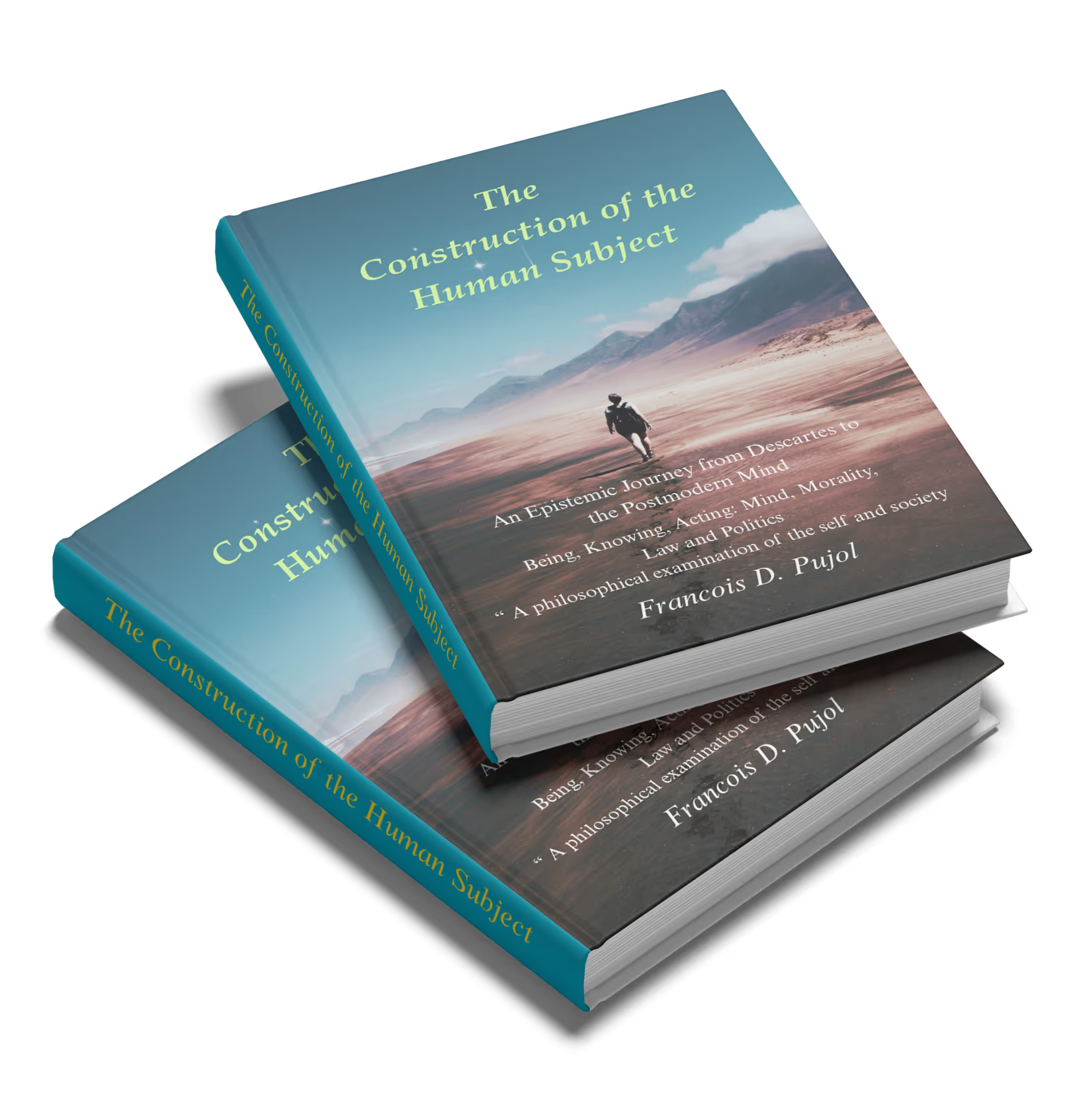The Constuction of the Human Subject
A sweeping exploration of how human beings come to understand themselves — through thought, morality, law, and society. A clear and engaging guide to the philosophical ideas that shape who we are.

Prologue
This book is the culmination of more than four decades of philosophical inquiry. It is a record of a lifelong effort to understand, interpret, and question the foundations of thought, morality, law, and politics through one unifying idea: the construction of the human subject.
Philosophy, from its earliest days, has asked: What is the self? What does it mean to be human? Are we primarily thinking beings, moral agents, social actors, or legal persons? Modern philosophy, beginning in the seventeenth century, confronted these questions with unprecedented intensity. The result was the gradual, complex, and sometimes contradictory construction of the subject, a being who thinks, chooses, feels, acts, and is acted upon; a being whose identity is both self-created and socially defined.
In the pages that follow, I trace this development, beginning with René Descartes’ foundational claim, Cogito, ergo sum—“I think, therefore I am.” For Descartes, the self is first and foremost a thinking thing (res cogitans), certain of its own existence through the very act of doubt. This radical move set the stage for all subsequent accounts of subjectivity. But Descartes’ self—rational, disembodied, and autonomous—soon encountered challenges from empiricist thinkers who located the self not in pure reason but in sensory experience, habit, and social interaction.
From epistemology, the inquiry proceeds into ethics, law, and politics. In each domain, the human subject is reconceived: as a bearer of moral responsibility, as a legal agent with rights and duties, and as a political citizen situated in structures of power. These overlapping spheres do not merely describe the subject; they constitute it. We become who we are through moral deliberation, legal recognition, and political participation.
The Construction of the Human Subject is not just a history of ideas. It is an invitation to consider the stakes of these constructions—how they shape our understanding of justice, freedom, agency, and community. In a world increasingly fractured by inequality, polarization, and technological transformation, the question of what it means to be human is more urgent than ever.
This book presents a range of divergent philosophical theories across epistemology, ethics, law, and political philosophy in order to provide a clearer understanding of how the human subject has been conceived and contested over time. Rather than defending a single viewpoint, the aim is to illuminate the internal logic, assumptions, and implications of each position—often, but not always, without inserting personal judgment each time. Each topic concludes with a reasoned summary or assessment, offering closure without imposing dogma. While some repetition of key ideas occurs across chapters, this is deliberate: it reinforces core concepts and helps the reader follow complex arguments more easily as they arise in different contexts. The result is a comprehensive but accessible exploration of the philosophical foundations of human thought, action, and social organization.
I do not pretend to be a discoverer of new ideas in philosophy, as Rawls or others might be regarded. This book is a compilation of different theories and frameworks that have shaped our philosophical understanding of the human subject. Its intent is to support those who are interested in these areas of philosophy and, perhaps, to offer guidance to students beginning their study of the discipline.
In addition, select chapters include early academic essays I wrote on related topics. In these, I adopt more defined positions, offering both critical engagement and interpretive perspectives on the issues at hand. Together, these elements aim to provide a comprehensive and accessible guide to the philosophical underpinnings of human thought, agency, and social life.
Ready to Dive Deeper?
Explore the ideas that have shaped our understanding of the self, society, and human agency. Get your copy today and begin the journey.
